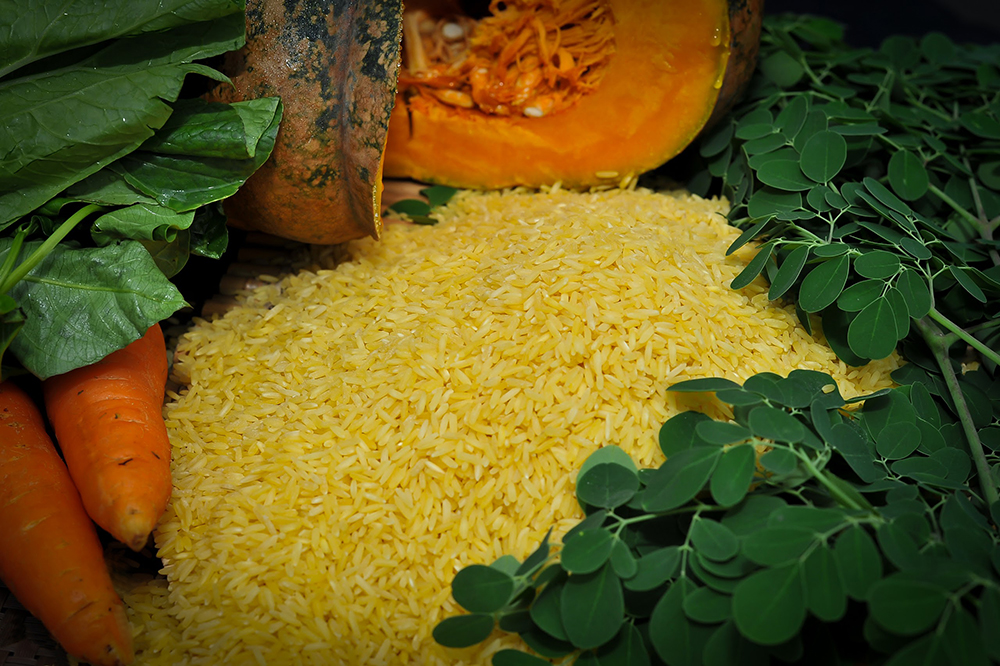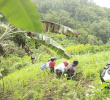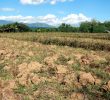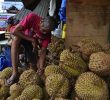
DAVAO CITY, Philippines – The Magsasaka at Siyentipiko para sa Pag-unlad ng Agrikultura (MASIPAG), a network of farmer-scientists, has called on local governments to take the lead in preventing the commercial release of genetically modified crops Golden Rice and Bacillus thuringiensis eggplant, citing potential dangers.
The call came even as the Supreme Court en banc issued a Writ of Kalikasan against the release of the genetically modified crops on April 18.
MASIPAG-Mindanao coordinator Leo Fuentes said, “The government should promote safe, healthy, and sustainable food production by supporting genuine pro-farmer agriculture and a pro-people food system.”
Fuentes warned of the irreversible damage the genetically modified crops bring to the environment, rice and eggplant biodiversity, and human health.
Instead, the group has been promoting the consumption of thousands of traditional varieties of crops developed and cultivated by small-scale farmers and indigenous peoples.
In the writ, the High Tribunal required the secretaries of the Department of Agriculture (DA), Department of Environment and Natural Resources (DENR), Department of Health (DOH), and heads of the Bureau of Plant Industry under the Department of Agriculture (DA), the Philippine Rice Research Institute, and the University of the Philippines–Los Baños to file a verified return within 10 days from service.
MASIPAG national coordinator Alfie Pulumbarit hailed the SC decision. “We welcome this move by the Supreme Court in issuing the Writ of Kalikasan on Golden Rice and Bt eggplant and its recognition that these genetically modified crops pose a grave danger to our environment and health,” he said.
The group had sought a temporary environmental protection order (TEPO) against the DA to stop the commercial cultivation of Golden Rice and Bt eggplant until proof of safety, and compliance with legal requirements is shown.
Pulumbarit said. “It is urgent that the propagation of Golden Rice and Bt eggplant be stopped as our local rice diversity and associated biodiversity are at stake with the threat of gene contamination from these genetically modified crops.”
MASIPAG had also sought the declaration of all biosafety permits for Golden Rice and Bt eggplant to be declared null and void and prodded the DA to conduct independent risk and impact assessments on the products, and obtain prior and informed consent from farmers and indigenous peoples.
In its October 12, 2022 petition, MASIPAG asserted that Golden Rice and Bt eggplant were genetically modified organisms that pose risks to the environment and the health of consumers.
The group alleged that Golden Rice was modified by inserting a gene from maize and a gene from bacteria extracted from soil.
Golden Rice was developed by Ingo Potrykus in Zurich and Peter Beyer in Germany from 1991 to 2000. It was bought and patented by the transnational agrochemical corporation Syngenta. The Bill and Melinda Gates Foundation supported its food testing for US$10 million.
The rice has been promoted by the DA and IRRI as a new type of rice that contains beta carotene, a source of vitamin A that could help address malnutrition.
MASIPAG has also claimed that Bt eggplant was harmful since the genetically modified crop produces its own toxin to kill insects that usually consume and damage regular eggplants. (originally posted on rappler.com)
Lucelle Bonzo is an Aries Rufo Journalism fellow.
bt eggplant, golden rice, MASIPAG, philippines









